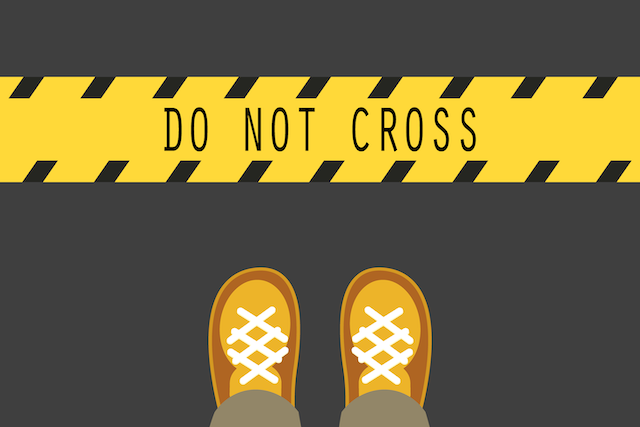
“This above all: to thine own self be true.” ~William Shakespeare
Though I appeared pretty high-functioning and what you might call “normal” as a kid, I was a ball of self-doubt and insecurity from an early age.
Overthinking, scrutinizing my actions, and generally worrying about what people thought came as naturally to me as breathing. Life felt like a great balancing act between who I thought I should be and who I actually was—and it was pretty exhausting.
You can imagine my relief when, while browsing for a textbook in the library at eighteen, I discovered the self-help genre (and in it, a new world.)
I can still remember sinking into a library chair and becoming engrossed in a story that was unlike anything I’d ever read. This book was about a woman and her short-lived love story, which on its surface is the oldest idea in the literal book, except this story was different.
This woman had fallen in love, basked in the glow of finding her ideal partner, and then found that the entire time she’d done so he was cheating on her.
While I expected her to rage, sob, and generally discount the whole relationship as a farce, she described an entirely different process that felt revolutionary to me at the time. She wrote about how after raging and sobbing and feeling the betrayal, she realized that she’d still had an incredible time being in love.
While he had never been real with her, the love she felt had been real—which meant it had originated within her (and not from him) all along. She was grateful, empowered, and absolutely blowing my mind with her interpretation of the situation.
You mean… we can decide how to interpret the events of our life? As someone who’d always thought that things were clearly good or bad, I was intrigued by the idea of another truth.
And though my life was anything but smooth in the years that followed, I carried this seed of an idea with me, as well as a steadfast love for self-work. Throughout each leg of my wildly fluctuating life journey I brought along various modes of self-development tools—tools that I believed would lead me to freedom.
The thing about tools like self-awareness, reflection, and communing with other seekers is that they can lead us to freedom. Taking ownership of our lives, agency over our stories, and employing the earnest work of improving our well-being regardless of what has happened to us is the stuff of literal miracles.
It’s changed my life, I’ve seen it change others, and I don’t want to live in a world that doesn’t involve self-reflection, reinterpretation, and the divinely-sprinkled-perspective-shifting-magic that can scoop people out of their misery and into fantastic lives.
But self-improvement tools can also be misused.
Much like we humans are complex combinations of darkness and light, the way we employ self-help tools on ourselves (and others) can be a similar mixed bag.
This subject is one that all of us “self-work” lovers and practitioners must reckon with at some point: Where is the line between taking responsibility for our perceptions, and having a valid response when important boundaries are violated?
How do we refrain from “spiritual bypassing” or glossing over real issues in ourselves and others?
I recently experienced a great example of this boundary in my own life, one that blindsided me but also reminded me how important it is to ask these questions.
It began a few months back when I decided it was time to level-up my entrepreneurial game and employ the skill of a highly respected and successful business coach.
Her price tag was high, but so was my commitment to unlearning many of the stories that had been keeping me stuck—so I splurged and purchased six months of coaching (twenty-four sessions at one hour each) for a large upfront sum.
I was amazed at how serious I got about my own self-work after spending this sum of money. Yes, the coaching was expensive, but that hefty price tag was helping me to be laser focused in our sessions and in my life.
Throughout our months of work together I also forged the deep bond of trust and support that’s necessary when working with a healer or coach: We must truly believe that our insecurities, doubts, and vulnerability are being held in a safe space. I felt that safety—and the magical container for growth it created.
The impetus of our work together involved the same seed of an idea I’d first read about in the library at eighteen: It’s not so much the events of our lives that make up who we are, but the stories we tell about them. It’s our thoughts (and the feelings and actions they create) that can either build our dream castles or our inner prisons.
Thoughts create our lives, but it was also my thoughts that this coach eventually used against me.
Three months into our work together she sent me an email one morning before our session.
“Our sessions will be changing from one hour to forty-five minutes, effective immediately.”
There would be no cost adjustment, additional sessions, or explanation of why she’d made this change. I did the math and realized that cutting 25% from each session would eliminate almost five total sessions from our initial and already paid in full agreement.
I was floored.
Her email continued: “You may have some thoughts about this. Thoughts like: ‘But that wasn’t our original agreement’ or ‘that’s not the same value.’ I encourage you to coach yourself and examine where these thoughts are coming from.”
I felt my anger begin to rise and realized that yeah, I had some thoughts.
She is not trustworthy.
She is taking advantage of me.
Financial coaches are all scheming and greedy.
The thoughts that came up from this interaction weren’t new: they were the offspring of stories I’d been telling myself for my entire life.
People can’t be trusted.
They’ll take advantage of you.
Financially successful people are scheming and greedy.
Recognizing and detaching from these limiting stories has been the greatest catalyst for my own growth and a huge reason that my work with this coach had been successful. I’d realized that they weren’t “truth” but only thoughts.
How then, was I to make sense of what felt like a clear breach of ethical boundaries couched in my old “thought” stories? How was I to sort through this issue with someone who knew my stories and could use them against me?
“Melissa, we know that it’s merely your thoughts about this situation because other clients of mine have had a positive response,” she told me as I questioned her that night. “Our change in session length is a neutral circumstance.”
The more she convinced me to question my judgment of the situation, the more I felt a rising of clarity within and the appearance of a boundary. Thoughts, stories, and circumstantial neutrality went out the window. This was my line in the sand. I ended our coaching relationship that night.
I’ve since continued to unpack my interpretation of the situation, and continually return to something that all of us intent on self-help should keep in mind: Regardless of what wonderful tools and treatment models we may employ toward our healing, there is only one tool that we can always rely on to guide, lead, and help us to discern our own “right” from “wrong”: developing our own inner guide.
It’s leaning into our intuition—the deeper knowing beneath our stories.
Ultimately, the most powerful tool in life is cultivating a strong trust in self.
We can read all the books, take all the courses, employ the best healers and coaches and mentors—but the core teaching from all these modalities should ultimately strengthen the trust we are building in ourselves.
If we never decided where our boundaries are (and looked at, say, an abusive relationship as merely a “neutral circumstance” about which we have “negative” thoughts) we’d never achieve the healing and transformation that most of us are seeking in the first place.
We need discernment as individuals. We need to believe some thoughts.
And ultimately, the best coaches, teachers, and mentors should be leading us to be a person who doesn’t need to rely on them to form an opinion. They should be showing us what we are truly capable of within ourselves.
But how do we trust ourselves amidst the nuance of not just the self-help world, but life in general?
How do we discern our own voice from that of people we love, respect, and even the trusted professionals we pay for guidance?
Though cultivating trust in ourselves is a lifelong process, there are tools that we can employ to feel in touch with our inner guide today. I turned to these that day with my coach, and I offer them to you in hopes that they’ll bring you closer to your own reliable inner guide.
1. Look in the rearview mirror.
Most of us have had to make big and difficult decisions before. Maybe it was ending a relationship, leaving a job, or even choosing how to care for someone at the end of their life. While we may have consulted with other people about these choices, at the end of the day we made them ourselves.
Somehow, we sifted through the noise of other people’s opinions and found a deeper knowing within. Reflecting on these moments in our past is a way to make salient the inner guidance we all already have. Though being open to “thought work” can sometimes feel like we’re open to throwing out opinions, the rearview mirror of life shows a bedrock of consistent and strong intuition.
2. Return to your body.
Each of us was given a primal and invaluable gift the day we were born: an animal body. This body can feel tense around some people and relaxed around others. It can tell us not to get into a sketchy elevator or to eat more of that nutritious and healing food.
Becoming “embodied” doesn’t have to be esoteric: It can involve the simple act of going for a walk, doing something physical, or paying attention to how and where we feel things in our bodies. Though our cognitive abilities can make things appear quite complex, these bodies of ours are much wiser than we give them credit for.
3. Practice meditation.
When we spend time watching our thoughts it gives us a chance to practice not identifying with them. Becoming aware of inner critics, opinions, and the varying stories we tell ourselves about our lives is the key to untangling from them. Trusting ourselves involves figuring out which inner voice we do want to listen to, and that’s made possible when we create the space (through meditation) to hear it.
4. Talk things out.
I know that talking to other people can seem like the opposite of listening to ourselves, but talking to someone can also show us what we’re already thinking.
Have you ever brought an issue to someone only to be relieved when they voiced the thing you were already thinking? I don’t mean the ego-compounding that can result from shared misery—it’s more like realizing what you really want to feel once you hear it from someone else. Talking (or writing) is also a way to organize our thoughts, gain perspective on them, and return to a situation with a new lens.
5. Realize that being a human is not a neutral event.
The situation with my coach is a perfect example of one that can be interpreted differently depending on who’s doing the analyzing. I have no doubt that some of her clients genuinely took this change as a positive one—and were they wrong? Not necessarily.
I simply have certainty that for me, the change wasn’t okay. I allowed myself to choose this boundary and then stand behind it—and in giving ourselves permission to make choices (that can and will be questioned by others) we strengthen a muscle that ultimately makes us who we are: humans with choice, discernment, and individual identities.
**
Ultimately, I’m not suggesting anyone give up on self-help, just like I wouldn’t stop using spoons if someone attacked me with one. (Spoons have been the vehicle for so many delicious things—they’re not to blame for being weaponized!) The gifts of inner work far outweigh the drawbacks; we’ve just got to remain true to ourselves as we sort through the land of self-awareness, responsibility, and thought work.
As Toni Morrison said, “The function of freedom is to free someone else.” I’m convinced that those of us with awareness of these teachings should harness and use them for good; the best healing practitioners are empowering people to heal (and trust) themselves.
I’m also convinced that some of the best breakthroughs in my life have come from my work with incredibly human, imperfect, and fallible teachers and their lessons. Recognizing where their helpfulness stops, and our own boundaries begin, could be the single biggest gift the self-development journey has to give us.
About Melissa Pennel
Melissa Pennel is a writer, mother, and life coach living in Northern California. She is the author of the book Questions You’ll Wish You Asked: A Keepsake Journal for Mothers and Daughters, which stemmed from the grief of unexpectedly losing her mother before asking important questions. Find more of Melissa’s writing by subscribing to her blog or visiting Followyourfirecoaching.com.



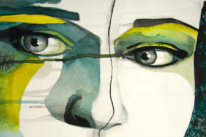
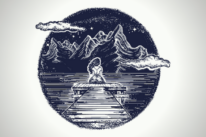


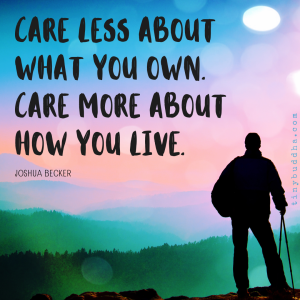

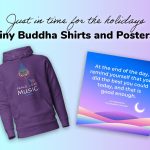



 Though I run this site, it is not mine. It's ours. It's not about me. It's about us. Your stories and your wisdom are just as meaningful as mine.
Though I run this site, it is not mine. It's ours. It's not about me. It's about us. Your stories and your wisdom are just as meaningful as mine.